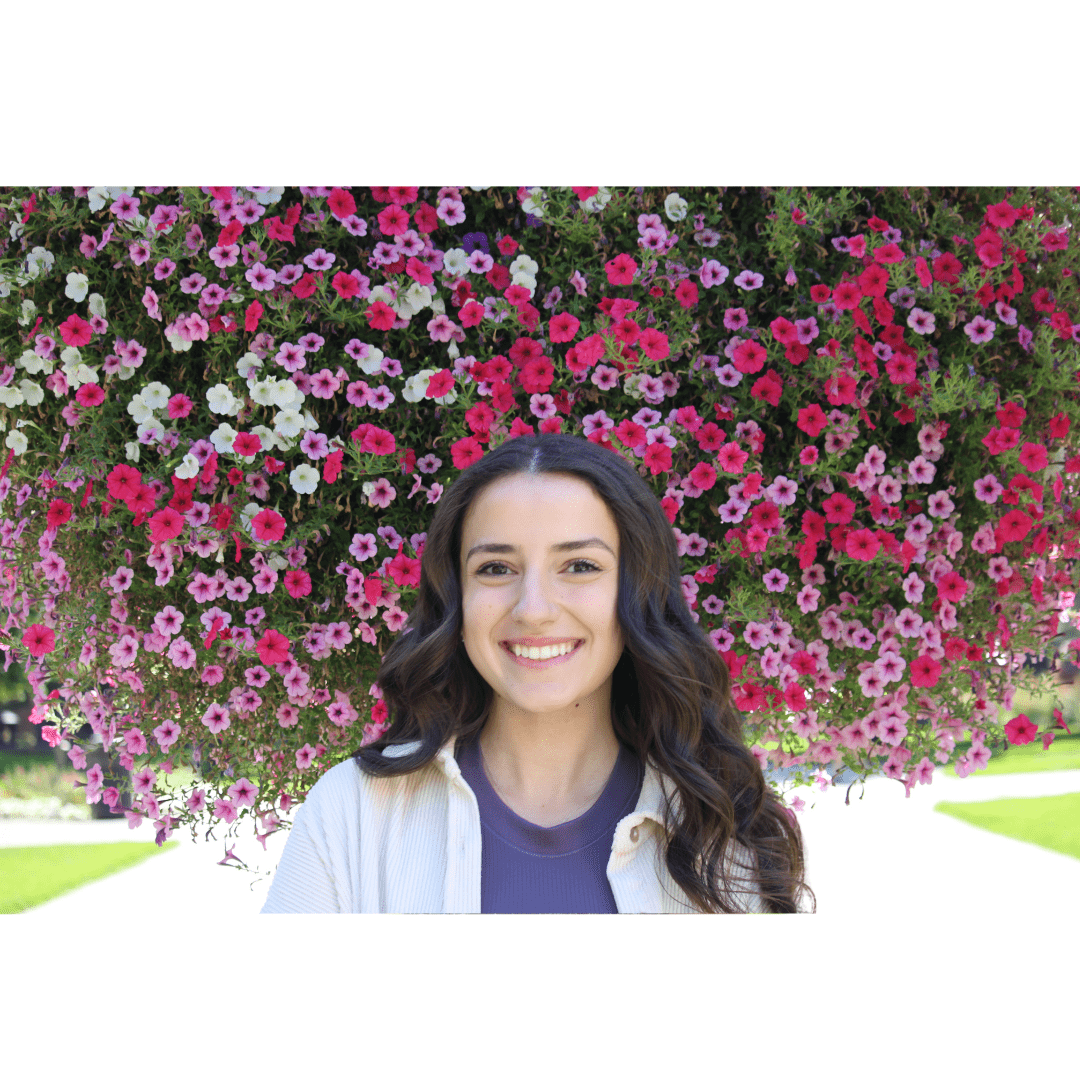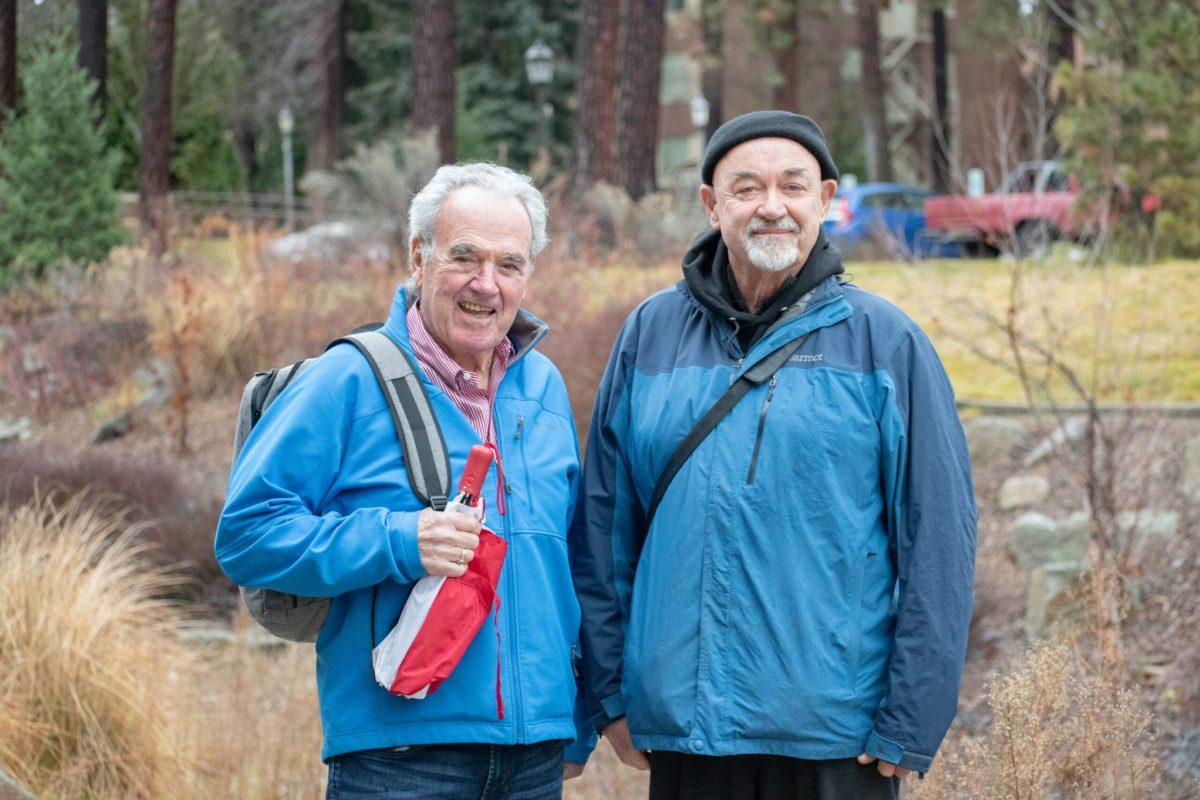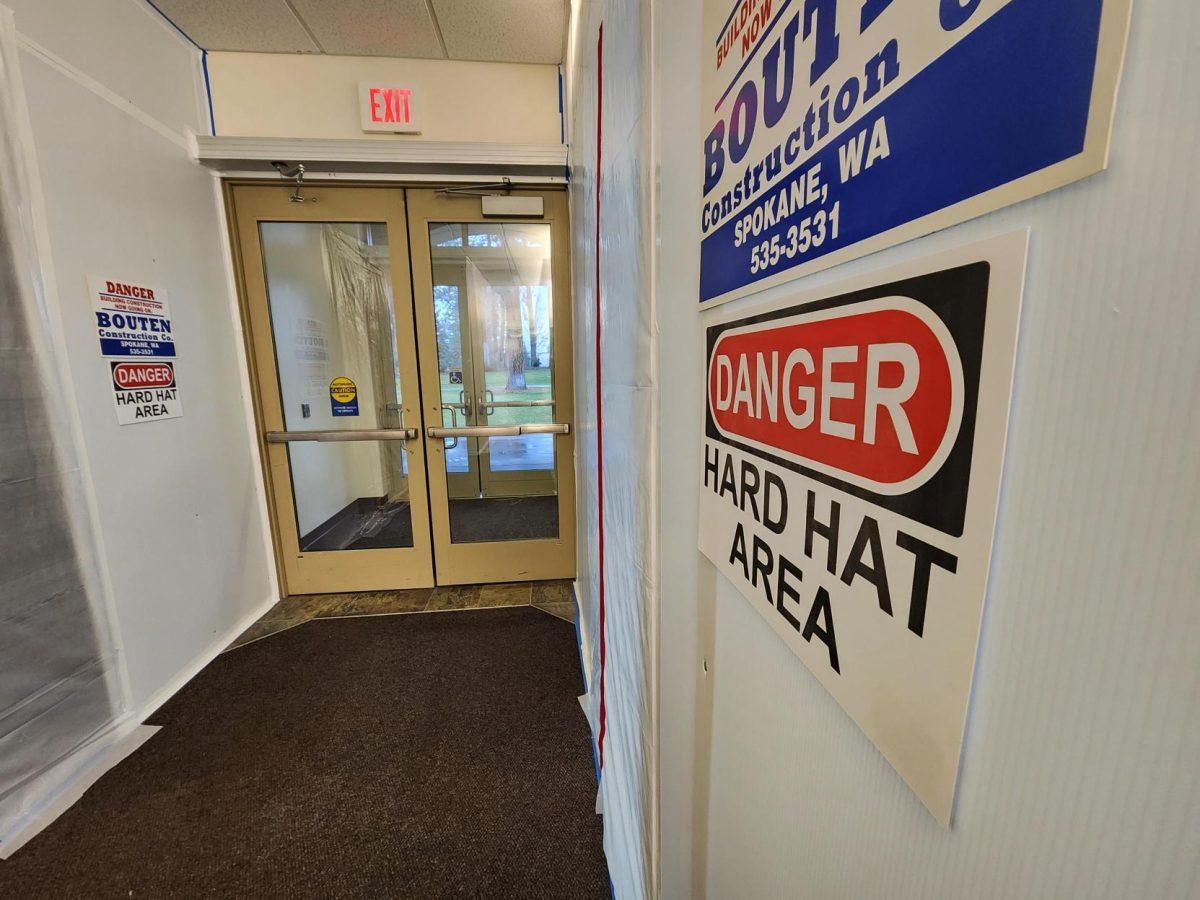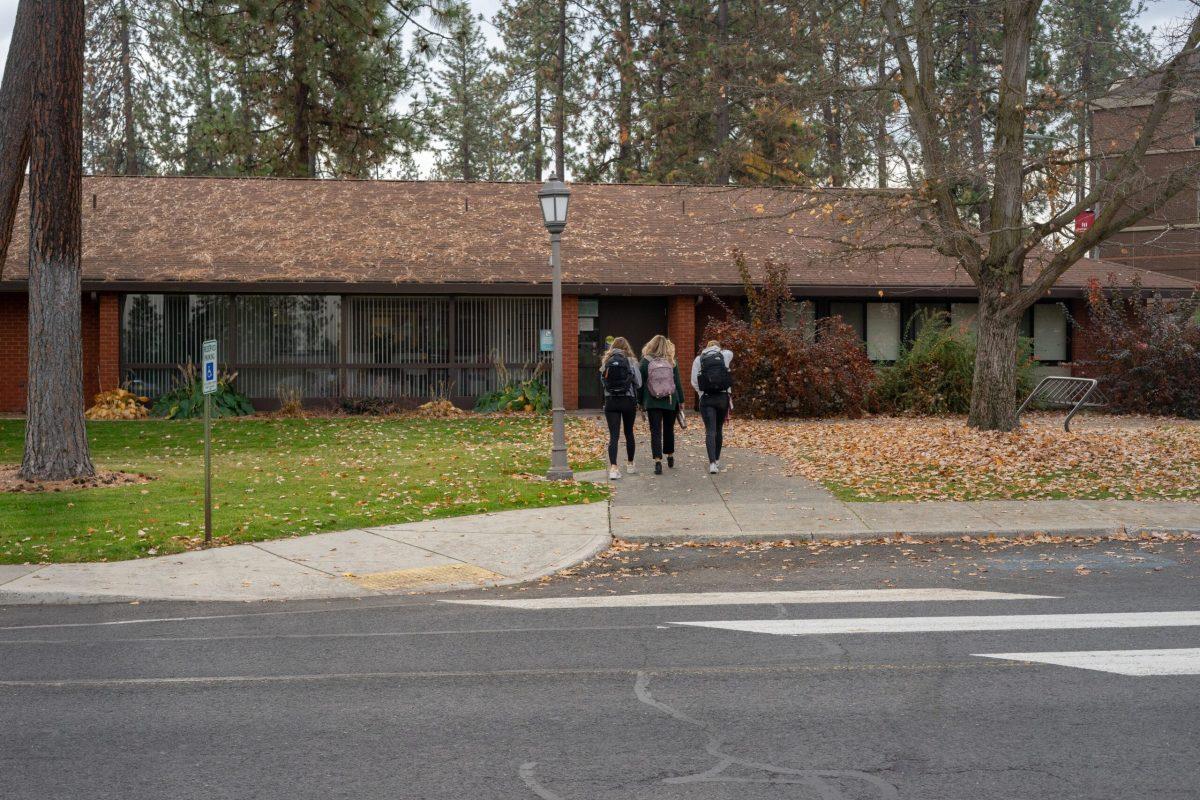Each year, four representatives are elected to serve the off-campus student population. These four representatives work under the off-campus senator, who was elected in the spring, and fulfill different roles to serve different needs in the community.
[ngg src=”galleries” ids=”9″ display=”basic_slideshow”]
Bobbi Jo Crittenden is a first-year majoring in secondary education and English. On the off-campus team, she will serve in the role of social media and public relations representative. Josh Siemens, a junior majoring in business administration, will serve in the role of communications representative. Grace Stiger, a junior studying elementary education, will serve in the position of policy engagement representative. Nick Yochum, a current junior majoring in history and sociology, was elected to be the community engagement representative.
Bobbi Jo Crittenden, Off-Campus Representative
Why did you decide to run for your position as off-campus representative this year?
I felt that especially teen moms, but moms that are going into university, need a voice, and I felt that I could be that voice for them.
What are some experiences that you’ve had on campus so far that have been formative for you that you think are going to be good assets for this position?
I’ve only been here for like a month. I’m a freshman, [but] at Whitworth I’ve seen how ASWU has helped people. And I’ve talked to Reeshika a lot, even before I was elected or anything, just about how she can help off-campus students. I’m a teen mom, and seeing how there’s not a lot of representation for that. People don’t plan things around having a kid, so I want to say things like maybe we can have an event at a different time, because that might be hard for someone to find childcare.
What are some new changes that you hope to effect in your constituency of off-campus students and just also at campus in general?
I hope for there to be more inclusion for everyone, off-campus or not. I know it’s really hard being off campus, feeling connected to people, or connected to just campus events in general. I know it’s hard for students to feel heard, and I feel like I can help them be heard, because I’ve been here a month and I kind of see how people could feel that way. I want to help make them feel heard and a part of campus community.
Is there anything that you want the student body to know about you as you enter this position?
I’m a mom, so any of the moms off campus, if they need to get a hold of me for anything, I’m always here. Anyone can, but moms might want to feel heard by someone who’s also a mom and understands what’s happening, because I know a lot of on- or off-campus students don’t know what it’s like to be a parent. So, letting them know that they can feel heard is really important to me, because I know especially when I was in high school, I was not heard. I’m a teen mom.
Josh Siemens, Off-Campus Representative
Why did you decide to run for off-campus representative?
I saw ASWU, and I understood it to be a certain way and I had a certain perspective of it. And I was also asked by Grace Stiger, who is another off-campus rep, to join with her. She wanted more of a, I as well, wanted more of a conservative point of view a little bit more. It’s tough to use those kind of words, but that’s kind of what I wanted for ASWU there, and just to have a different perspective. I also wanted to understand what’s going on around the school too, and internally as well.
What does conservative point of view mean to you?
Just based on voting, clubs and stuff. That’s kind of hard to explain. More ideology. So, I feel like it’s not discriminatory in any way, but I feel like it’s tough for us to kind of get our point across, people that think like us a little more.
When you say you saw ASWU to be a certain way, what have you seen as evidence of that? And what does that mean?
That’s a tough one. I think it kind of gets a bad rap on campus. I think students see it as, I hate to use harsh words like this, but they see it as kind of useless and they don’t really do anything. That’s kind of the perspective of students, and I know that’s not the case at all. So that’s where I’ve kind of wanted to be involved a little more, just so I could kind of prove to myself and be able to tell others about what’s actually going on in ASWU. I wanted to understand what they’re actually involved in, and what they’re doing. I know it’s a really great program they got going, and they are helping our school a lot.
What are some experiences that you’ve had on campus that have been super formative for you, that are going to be good assets for this position this year?
I think on campus, one of my biggest experiences has been with sports. It’s definitely helped me see a different side of the school, rather than what I would see just in classes or just being a part of, say, clubs or something. I think that’s the biggest part of it, for sure.
I played baseball till this past January now. And I’m actually currently coaching a little bit with the baseball team.
Do you have any specific tangible changes that you want to affect, first with off-campus students as your constituency, but secondly with Whitworth as a whole?
Off campus for sure. I definitely want to get them more involved within the school. I found that even in my first month of living off campus, I’ve been kind of isolated from what’s going on within the campus and within the school. So I think that’s where first, personally, I need to get involved a little more on campus and then get others involved too. I’ve seen that I’ve been kind of set back away from campus and I’d like to bring others in to get them more involved. The school is a community, it’s not just a bunch of kids going to classes. You’ve got to have a community, and if that community is only the kids on campus, I think they’re missing a huge part of what the school is with all the students off campus.
Are there any changes you want effect within Whitworth more broadly?
I’d like to bring a different perspective and have people, especially the members of ASWU, think a little bit differently; not just with one belief and one mindset. I’d like them to have the perspectives from all other kinds of people, other beliefs, and just be accepting of all those other beliefs. Personally, I need to do that as well, but I feel like other people need to see a different side of things with certain issues.
What’s something you want the student body to know about you?
I played baseball as a big part of my life. I quit now in January, but until then. I’m Canadian. People, when they find that out, they think that’s this cool thing — so I think that’s cool for them to know. I love getting to know people, that’s part of the reason why I wanted to join another group like this, getting to meet other people that I would maybe never get a chance to meet otherwise. And I just love God. I’m a passionate Christian, and my relationship with Him is the most important relationship in my life. That’s kind of where I get my perspectives, and my beliefs and ultimately my values and identity — through Him.
Grace Stiger, Off-Campus Representative
Why did you decide to run for off-campus representative?
I decided to run for off-campus rep because I thought it was a good opportunity. I transferred, and so I kind of wanted to be at a place where I was more involved. And so part of what I’m wanting to do is represent conservative students on campus. I feel like I’ve loved every aspect of what Whitworth has given me, except that community of like-minded people in the political sense. And so with NEW, which we’ll talk about later, and then this, I feel like that’s how I can make that happen at Whitworth.
What does the word conservative mean to you? What kind of conservative are you trying to represent?
Kind of both, I guess, in a sense, because I’m politically conservative because of my religion. So I think that while people differ on different things, I think that there’s a lot of commonalities in a lot of people that we need to recognize too. And so I want to kind of be someone that people can go to, whether they think like me or not, and be kind of that safe space for people without thinking that it’s so divisive because of my political views. Because at the end of the day, I’m called to love people, whether they think like me or not. I think a lot of people kind of get lost when they think of conservatives in that way. And I think that that’s a misrepresentation of a lot of people. And so that’s kind of my goal, also with being in ASWU, is being able to share my thoughts and my opinions to the student government, in a way that is respectful, bring civil discourse, is welcoming to other ideas and values so we can kind of come up with good solutions that serve everyone in the best way possible.
You want to represent conservative students on campus. What does that look like to you? And what gap in representation are you trying to fill with that?
Yeah, so I’ll kind of start with the story. Last spring, so spring ‘21, I was invited to meet with about five or six other Whitworth students in the president’s house with Scott McQuilkin, Rhosetta Rhodes, Roberta Wilburn and Forrest. And it was a group of conservative students. And they were kind of wanting to know how we felt on campus and what change we thought would be effective to see, to make us feel more welcome.
How did they know your political affiliation?
So, I’m part of Students for Life as well. And so Sarah Quinn, the president, was there, and then I think that was also when I was also starting to talk to Jason about network of enlightened women. So I’m sure he just put pieces together for me.
To my understanding, from what they’ve told me, when a lot of students leave, they leave because they don’t have a place on campus and a lot of those students happen to be conservative. And so kind of what they were wanting to do is figure out ways we could make a place on campus and so they were excited about the clubs I’m doing and what we’re trying to bring and kind of again that civil discourse, just the whole idea, because politics can be so polarizing, a lot of times, which is understandable, but I feel like college is the place where you should be coming together with people that think like you but also that disagree with you, and kind of getting to realize that you might know everything, you might not, and kind of getting into learn from people that think like you but also think differently, because that might change your views. Or you might change someone else’s, or if you talk to a professor and you never thought of something. And so it’s kind of, I guess, realizing that I don’t know it all, that people don’t know it all, and kind of wanting to build that safe place for people because I never felt like I could share my thoughts on anything. Because a lot of people were just outspoken and I wasn’t like that. And so I think that’s what a lot of people that are politically kind of aligned with me feel like, on campus, and I feel like that’s similar at a lot of college campuses. That’s not unique to Whitworth. But yeah, so kind of just wanting to do that.
You mentioned that college should be a place for us to be challenged and pushed upon. Have you felt that experience at all? Have your views been shaped by your experience at Whitworth so far?
I grew up in a Christian school my whole life. And I was never really challenged until I got to Whitworth. And I’ve loved it, because that’s how you get more independent and more of a strong individual is being challenged. And so being in my Core classes, for example, I’m getting introduced to lots of different ideologies and different things that I never really learned about. I think that that’s fascinating. And it kind of turns me back to the Word and what God says and kind of how that directs my life. And because at the end of the day, politics, or student government or friends aside, none of that should be guiding you. It should be the Bible and what God’s Word says and how we should act as individuals. And so Whitworth has challenged me in a lot of ways, by my faith, politics [and] classes, like it’s all been great, and I’ve loved it here.
What are some formative experiences that you’ve had on campus at Whitworth so far that are going to be good assets for this position specifically?
I was also part of Teachers of Tomorrow last year, and so that allowed me to connect with a lot of education majors, a lot of which are now off campus, so part of my constituents. And just getting to meet people in the dorms and kind of getting to know people, I think that that’s shaped me. Also kind of like I said, being at Whitworth for three years now, I’ve seen things that I’ve liked, that I’ve disliked that I’ve been indifferent to, and so I kind of just want to be involved in knowing what’s happening on campus, knowing what I can do to like make things happen and kind of how I can support people around me.
What are some changes that you want to effect specifically in the off-campus constituency, or more broadly at Whitworth?
I would love to bring off-campus people together more. I feel like there’s, and I’m probably not the first person to say, there’s a slight disconnect going from two years in the dorms to just only going on campus for classes pretty much. And so I kind of want to find ways, with Reeshika and the rest of the off-campus reps, on how we can create fun events that people want to go to. I know for me, as an off-campus student for two years now, it’s kind of like, do I want to go to this? I don’t know. So making things that draw people in where they want to be involved again, I think that that will be awesome.
What’s something that the student body should know about you, that you’re going to carry into this position?
I guess you could say that I love getting to know people and getting to talk to people. And I’ve said this several times by now, I think, but whether they think like me or not, I think that there’s a lot more to a person than what we make it out to be, and so I love talking about different topics, and different ideas and different things that go on at Whitworth. And so I guess just letting people know that they can always come to me if they want to talk about stuff.
Nick Yochum, Off-Campus Representative
Why did you decide to run for off-campus rep?
A lot of my friends that are juniors like me were moving off campus and we had conversations about how we felt. Once you move off campus, you are detached from the university in a way that being on-campus allows you to be interconnected constantly. And one of the ways that like we specifically talked about was when we had problems or things that we wanted voiced or talked about, we would talk to our senators, and that’s such a direct line of communication of someone that you live in the same building as, you see frequently, and you can talk to. So many people I know in so many different pockets or corners in the university that are now moving off campus were like, ‘I don’t feel like I’m going to be represented in the same way and that’s something that I’m worried about.’ And I’ve always been very interested in ASWU and the way that I feel like they are often misunderstood in what they can do, how they can enact change on campus and how important it can be for creating a campus that has a bunch of students that feel like they’re heard. So I wanted to run because I felt like I’m connected to so many different diverse groups of people on campus. There are both things I’m interested in, as well as identities as well as areas of concern in the university that I felt like I knew enough people from enough backgrounds that as a voting member of ASWU, as an off-campus rep, I would be able to accurately represent the people that are now off campus that don’t feel like they have as much of a say on campus anymore.
What are some formative experiences that you’ve had on campus, or before in other leadership positions, that are going to be good assets for this position?
I was involved in student government in high school and developed a skillset of being able to connect with and get to know a lot of different people and build relationships with them very quickly, in a way that was really helpful to me because I felt like I understood a lot of different aspects of my high school’s experience for different students. That’s something that I brought to Whitworth and just my personal approach to my relationships and my friendships, but even more so I spent last year as an RA on campus. And we spend so much time in training and learning about the different opportunities or tools or services that Whitworth provides to students that a lot of students just don’t realize are there. When they need academic help, or mental health help or things aren’t going well for them and they need support, there’s so many things that I’ve learned about from the university that are important. And I feel like with ASWU there’s a different avenue, there’s a much more decision-making perspective than a providing-support perspective from an RA. But with the amount of stuff that I’ve learned and the amount of the, just various groups of people I got to connect with because of being an RA, and the different places I got connected to so that I could let my residents know what was going on, I feel that I have a lot of really solid touch points in the university to know what’s going on and know people that are working to support students, not just from an admin perspective, but just from what they’re doing in their jobs, whether that’s in the Academic Support Center, or the International Student Center (ISC) or any places on campus that are meant to support students. I feel like I have good relationships in each of those places so that when the off-campus students that I represent need things, I’ll be able to connect them with [resources] and bring that information to ASWU and talk about it, when there’s conversations of students needing more support from the off-campus perspective.
What are some changes that you hope to effect in your specific off-campus constituency, or Whitworth as a whole?
Personally, what I want is for students that are off campus to have the paradigm shift that they still do have a voice, even though they are no longer just constantly on campus and in buildings on Whitworth property. I think that’s a very big mental block that makes students feel like they don’t have a say, which then makes them feel hopeless, and then why would they even bother voicing it. That’s not true for everybody, but there’s a lot of people that feel like it’s easier to disengage from the university instead of advocating for what they need or what they want to see changed. So I think a lot of it for me has to do with informing the people that I work with, and the people that I’m supposed to represent that I want to make them feel like they are represented, so that when they have needs, they don’t just get frustrated and then dip and not even try to advocate for them but that they feel like there’s an avenue for them to advocate for it. So changing that paradigm is a big part of it. But for me personally, in terms of like just influencing and affecting the university, I think it’s desiring to make a place where students know what they deserve, know what we can and should be doing for them and giving them avenues to advocate for themselves in ways that feel accessible, and are interpersonal. They can contact me and talk to me and I can help them get the things they need. ASWU is connected with the different avenues that support them on this campus, so I want to make sure that they know what they deserve and that they can ask for what they deserve. If you don’t know what you actually deserve, or what you can end up getting from the university, then how do you know what to ask for? So I think a big part of it is just making sure on campus students know about new things that they can use to take care of themselves or meet the needs that they have and stay connected. But yeah, I think that’s the more personal note.
Is there anything that your constituency and the student body should know about you that influences how you’re going to do this role?
I think the thing that I try to bring to all of the on-campus and personal things that I work on or become a part of or am involved in position-wise, is that I work very hard to be interconnected with a lot of various groups of people. I’ve worked very hard to not just have a specific group of people that I go to and have a very insulated experience and perspective of Whitworth. I find it really valuable and really exciting to go and connect with people that I don’t naturally run into in my daily cadences. Being able to be connected with various groups of people on campus, get to know them, build relationships with them, that interconnectedness is something about myself that I want to bring to everything I do at Whitworth and beyond, but I think will be really exciting to pursue specifically through ASWU. A lot of people that work in ASWU have a lot more logistical stuff to do. There’s a lot of very bureaucratic stuff that they have to take care of and meet with people and sign off on stuff. And oftentimes, it’s harder for them to schedule in ways to connect with people, which is why people like off-campus reps and your in-hall senators are so important because they’re the touchpoints for ASWU in the university. ASWU doesn’t know what’s going on across campus or off campus with students unless they have those people representing them, so for me, there’s this level of, I love connecting with those people. And I love making sure that people have the things that they need to succeed and be taken care of, so with the amount of different various groups of people I’m connected with, I’m really excited to try to bridge a gap that I have noticed between off-campus students and ASWU. Off-campus students don’t deal with Residence Life, off-campus students have to choose to engage with campus ministry because they don’t have their CMC just in their hall. ASWU is the thing that impacts them regardless of where they live, so I think that’s a really cool opportunity to connect with them and try to bridge the gap between them and also kind of shift it to a more positive perspective where there’s a positive attempt at a relationship between students and ASWU, and not just having a very negative perspective on ASWU overall. It’s a new team every year, and they’re just trying to do their best to meet needs and until we connect with students and they can voice that to us and we can communicate it as representatives to ASWU, then ASWU doesn’t know what they need to do. So I’m really excited to use my interpersonal relationships I’ve already built to really connect off campus and ASWU.













 Spokane?
Spokane?